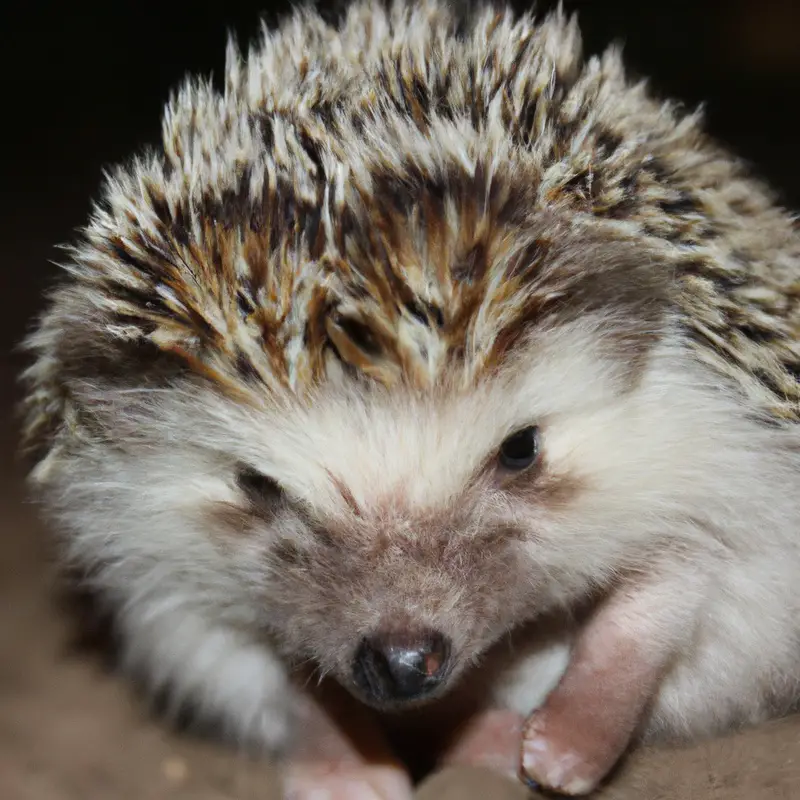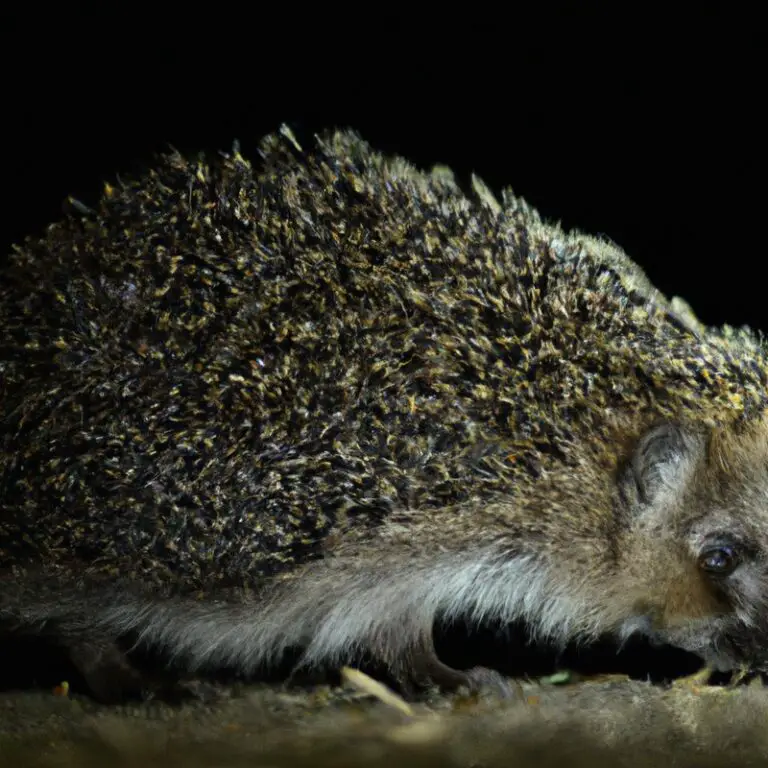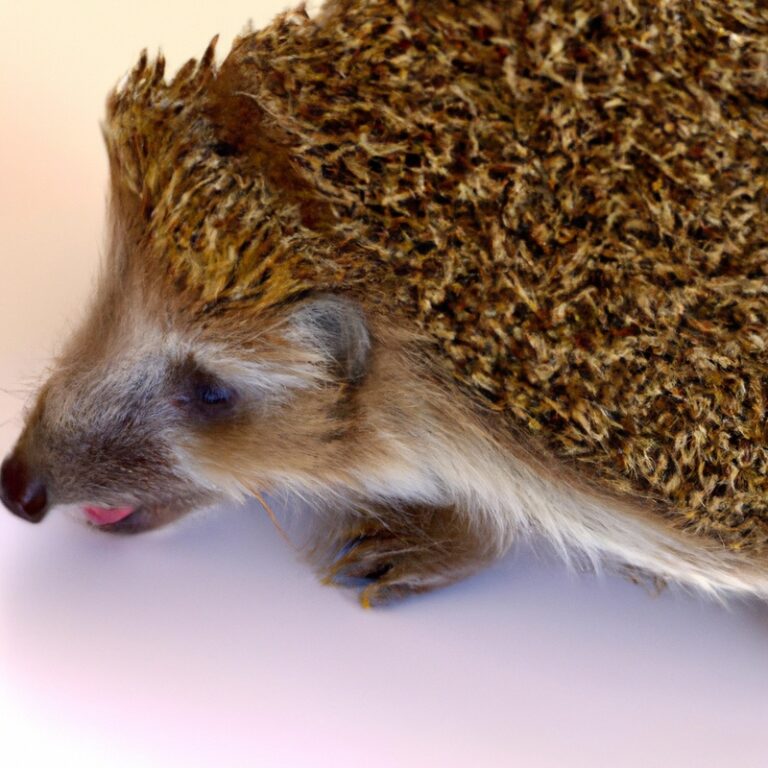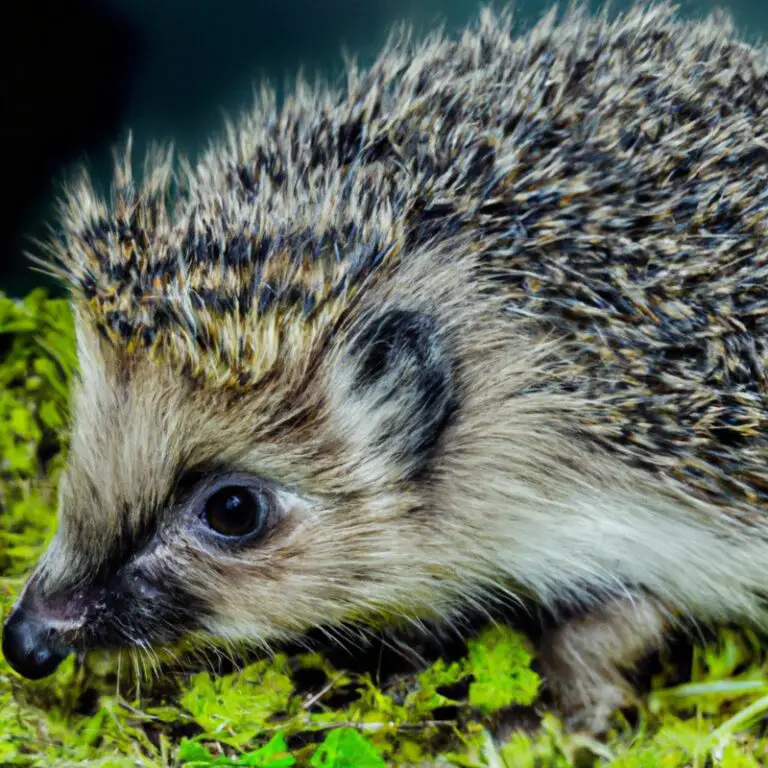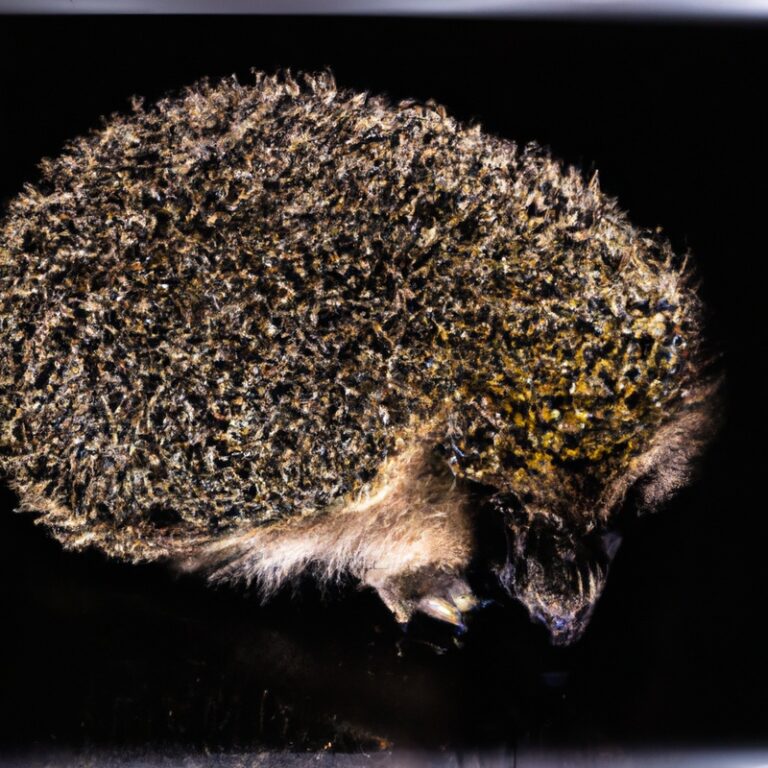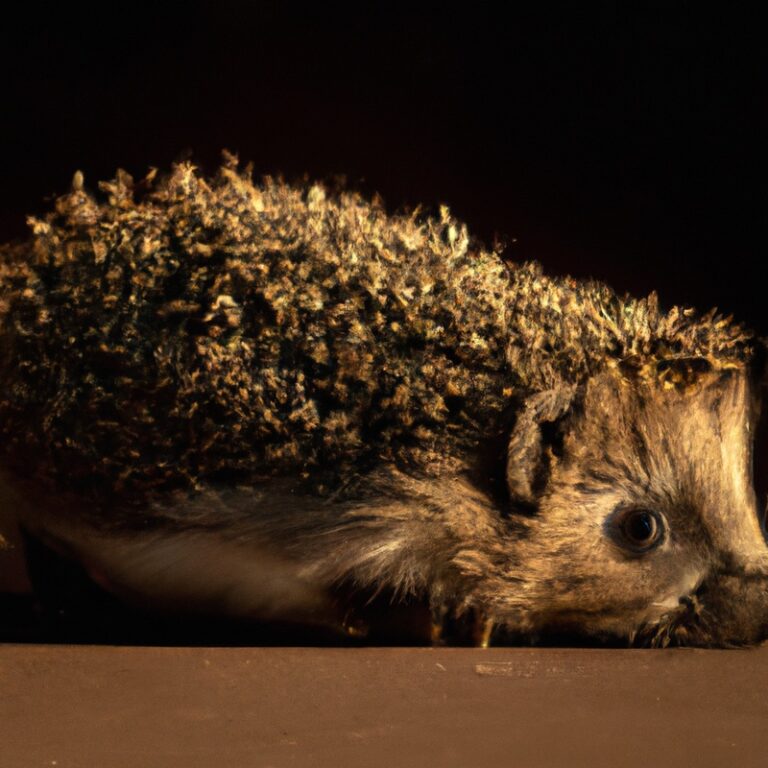What Is The Role Of Hedgehogs In Pest Management?
Key Takeaways:
- Hedgehogs play a vital role in pest management by consuming large quantities of garden pests, such as slugs and insects.
- The natural behavior of hedgehogs, such as foraging and hunting, helps control the population of pests in gardens and agricultural fields.
- Hedgehogs are an eco-friendly and natural alternative to chemical pesticides, as they do not pose any harm to the environment or other wildlife.
- Encouraging hedgehog-friendly habitats and providing food and water sources can attract and support these helpful creatures in managing pest populations.
Are you tired of battling pests in your garden or on your farm? Well, what if I told you that there’s a natural pest control solution right at your doorstep?
Enter the humble hedgehog.
These spiky creatures may seem like unlikely heroes, but they play a vital role in pest management. With their voracious appetite for insects, slugs, and other garden pests, hedgehogs are nature’s own pest controllers.
They can help reduce the need for chemical pesticides, maintain ecological balance, and even bring economic benefits.
In this article, we’ll delve into the fascinating world of hedgehogs and explore how they can revolutionize your pest management efforts.
| Hedgehogs | Pest Management |
| They are natural predators of pests | They help control the population of insects |
| Feed on slugs, snails, and insects | Reduce damage to crops and plants caused by pests |
| Can consume large quantities of pests | Offer an organic and eco-friendly pest control solution |
| Habitat creation can attract hedgehogs | Encourage natural balance in the ecosystem |
| Can access hard-to-reach areas | Control pests in gardens, farmlands, and green spaces |
Hedgehogs as Natural Pest Controllers
Hedgehogs play a valuable role as natural pest controllers.
Hedgehogs’ diet and feeding habits
Hedgehogs have a varied diet consisting of insects, earthworms, snails, slugs, and sometimes frogs and small rodents.
They primarily feed at night and are excellent hunters, using their sharp teeth and keen sense of smell to locate their prey.
Hedgehogs also supplement their diet with fruits, berries, and plants.
It is important to provide a suitable habitat with access to food sources to support their natural feeding habits.
Keep in mind that offering dry cat food as a supplementary option can aid their nutrition, but should not be the main component of their diet.
Hedgehogs and garden pests
Hedgehogs can be incredibly helpful in controlling garden pests. They have a natural appetite for insects, slugs, snails, and other small creatures that may damage your plants.
By attracting and providing a safe habitat for hedgehogs in your garden, you can reduce the need for chemical pest control methods.
Creating hedgehog-friendly spaces with shelter, water, and food sources will encourage them to stay and help keep your garden free from pests. Remember to avoid using harmful pesticides that could harm these helpful critters.
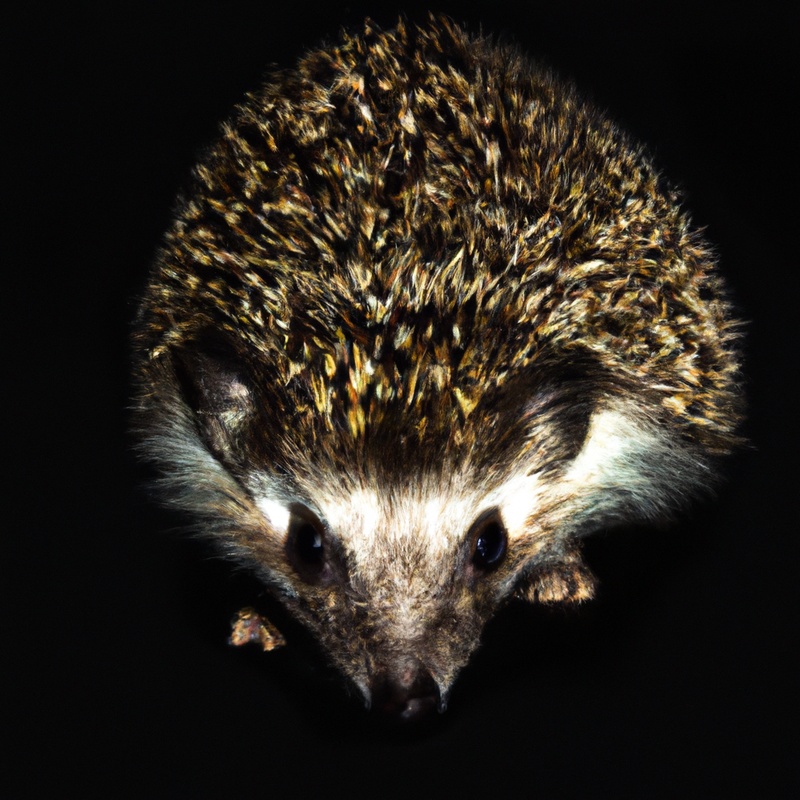
Hedgehogs and agriculture pests
Hedgehogs play a crucial role in controlling agriculture pests.
With their natural diet consisting of insects, slugs, and snails, hedgehogs help to keep these pests in check.
They are particularly effective in orchards and gardens where pests like beetles and caterpillars can cause damage to crops.
By attracting hedgehogs to your farm or garden, you can reduce the need for pesticides and promote a more environmentally friendly approach to pest management.
Plus, they’re cute and fun to have around!
How hedgehogs control pests naturally
Hedgehogs control pests naturally through their diet and behavior. They are insectivores, meaning they primarily eat insects like beetles, slugs, and snails, which are considered garden pests.
Hedgehogs also have a keen sense of hearing and smell, allowing them to detect pests such as mice and rats.
Additionally, their spiky quills provide protection against larger predators. All in all, hedgehogs play a valuable role in pest management by keeping populations of unwanted pests in check.
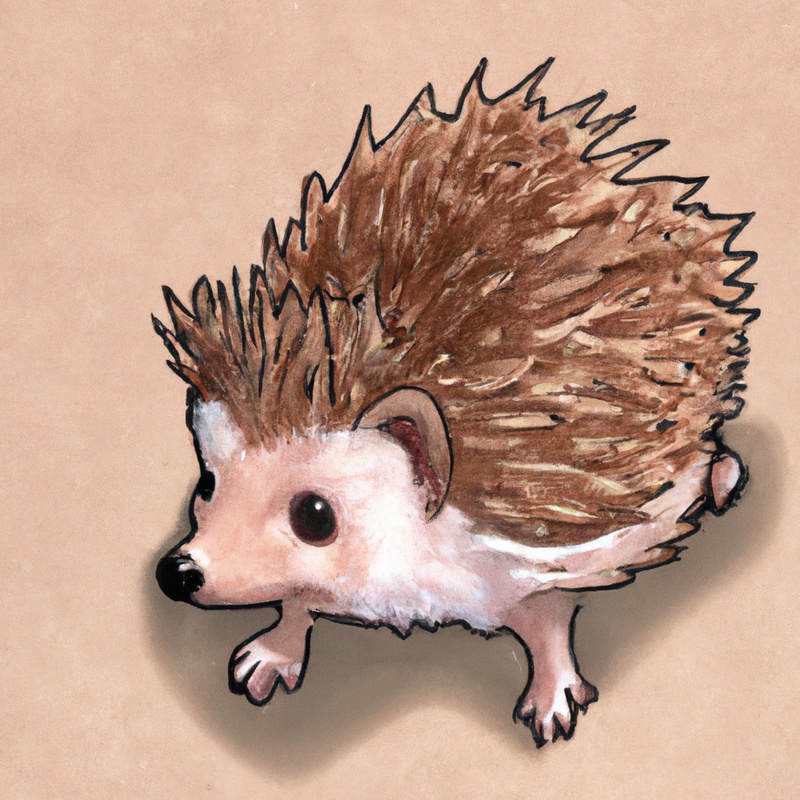
Benefits of Hedgehogs in Pest Management
Hedgehogs offer natural pest control by reducing chemical pesticide use and helping maintain ecological balance.
Reducing chemical pesticide use
Reducing chemical pesticide use is an important step towards promoting environmental health. One way to achieve this is by implementing organic farming practices that prioritize natural pest control methods.
These methods include crop rotation, companion planting, and the use of biological controls such as predators and parasites.
Additionally, promoting biodiversity on farms can attract beneficial insects and birds that naturally suppress pest populations. By minimizing the use of chemical pesticides, we can protect ecosystems, safeguard human health, and support sustainable agriculture.
Maintaining ecological balance
Maintaining ecological balance is essential for the health of our planet. It involves preserving the delicate relationships between different species and their habitats.
By protecting biodiversity, managing resources sustainably, and minimizing pollution, we can support a thriving ecosystem.
This ensures that all living organisms, including humans, have access to clean air, water, and food. It is our responsibility to make conscious choices and take actions that promote ecological balance for a sustainable future.
Hedgehogs as sustainable pest control solution
Hedgehogs are a natural and sustainable pest control solution.
These spiny creatures feed on a variety of garden pests, including slugs, snails, insects, and even small rodents.
Their diet helps to control pest populations without the need for harmful chemicals or pesticides.
By attracting hedgehogs to your garden with shelter, food, and water, you can create a sustainable ecosystem that benefits both plants and wildlife.
So, consider welcoming hedgehogs to your yard as a safe and eco-friendly way to manage pests.
Economic benefits of hedgehogs in pest management
Hedgehogs provide economic benefits in pest management through natural pest control.
They prey on insects like slugs, snails, and insects harmful to crops, reducing the need for chemical pesticides.
This can save farmers money and decrease environmental impacts.
Additionally, hedgehogs attract tourists and nature enthusiasts, boosting local economies through wildlife tourism.
Their presence in gardens can also increase property values.
Overall, hedgehogs play a valuable role in pest control and can bring economic benefits to communities.
Hedgehog Conservation and its Impact on Pest Management
Hedgehog conservation plays a vital role in pest management, benefiting both the hedgehog population and reducing pest populations.
Threats to hedgehog population
The hedgehog population is facing several threats that can have a negative impact on their numbers. These include habitat loss, urbanization, increased traffic, and the use of pesticides.
As their natural habitats are destroyed or fragmented, hedgehogs find it difficult to find food and suitable places to nest.
Urban areas also pose dangers, such as road accidents and exposure to toxic substances. To protect hedgehogs, it is essential to address these threats and create safe environments for them to thrive.
Importance of conserving hedgehogs
Conserving hedgehogs is important for several reasons.
- They play a vital role in controlling pest populations. Hedgehogs eat many garden pests such as slugs, snails, and insects, helping to naturally manage these populations and reduce the need for harmful pesticides.
- Hedgehogs are also important for maintaining biodiversity. By protecting their habitats and providing safe spaces for them to live, we can help ensure a healthy ecosystem where other wildlife can thrive.
- Finally, hedgehogs are a beloved and valuable part of our natural heritage. Conserving them ensures that future generations can enjoy the pleasure of encountering these enchanting creatures in our gardens and countryside.
Encouraging hedgehog-friendly habits
To encourage hedgehog-friendly habits, there are a few simple things you can do. Firstly, create a hedgehog-friendly garden by leaving areas of long grass and piles of leaves for them to nest in.
Secondly, ensure there is a gap in your garden fence so they can freely roam between gardens.
Thirdly, avoid using pesticides and chemicals in your garden, as these can be harmful to hedgehogs. Remember, small changes in your habits can make a big difference in helping hedgehogs thrive.
Collaboration between conservationists and pest control agencies
Collaboration between conservationists and pest control agencies is vital for effective pest management. Conservationists provide valuable knowledge about the ecological impact of pest control methods and help identify alternative solutions that minimize harm to non-target species.
Meanwhile, pest control agencies contribute their expertise in controlling pests and implementing strategies on a larger scale.
By working together, these two groups can develop integrated pest management plans that prioritize both conservation and effective pest control. This collaboration is crucial for balancing the needs of ecosystem health and human well-being.
Frequently Asked Questions (FAQs)
Can hedgehogs control all types of pests?
Hedgehogs are great at controlling certain types of pests, particularly insects like beetles, slugs, and snails. However, they may not be as effective in managing other pests like rodents or larger animals.
It’s important to understand that hedgehogs have their limitations and may not be a one-size-fits-all solution for pest control.
Do hedgehogs pose any health risks?
Hedgehogs can pose some health risks, especially if proper care is not taken. Here are a few things to keep in mind:
- Salmonella: Hedgehogs can carry Salmonella bacteria in their feces, which can lead to infection if not handled or cleaned up after properly.
- Zoonotic diseases: Hedgehogs have been known to carry certain zoonotic diseases such as ringworm and fleas, which can be transmitted to humans.
- Allergies: Some people may have allergies to hedgehogs, particularly to their dander or urine.
To minimize these risks, it’s important to practice good hygiene when handling hedgehogs, wash hands thoroughly after touching them, keep their habitat clean, and seek veterinary care if any health concerns arise. By taking these precautions, you can enjoy the company of hedgehogs while reducing potential health risks.
How can I attract hedgehogs to my garden?
To attract hedgehogs to your garden, create a safe and inviting environment. Provide dense shrubs or bushes for cover, as well as a variety of plants to attract insects and slugs, which are a hedgehog’s favorite food.
Leave piles of leaves and logs for them to explore, and avoid using pesticides that can harm their food sources.
Additionally, consider installing a hedgehog house or providing a sheltered area where they can nest and hibernate.
What other natural pest control methods can be used in conjunction with hedgehogs?
Other natural pest control methods that can be used in conjunction with hedgehogs include:
- Companion planting: Planting certain flowers, herbs, and vegetables together can repel pests and attract beneficial insects that help control pests.
- Attracting birds: Birds, such as bluebirds and chickadees, feed on insects and can help keep pest populations in check.
- Using beneficial insects: Introduce or attract beneficial insects like ladybugs and praying mantises, which actively prey on and control garden pests.
- Creating habitat for bats: Bats are natural predators of nocturnal insects, including mosquitoes and moths, and can help reduce their populations.
- Encouraging predatory animals: By providing shelter, water, and food sources, you can attract predatory animals like owls, snakes, and foxes, which naturally control rodent populations.
It’s important to note that while hedgehogs are helpful in managing certain pests, integrating a combination of natural pest control methods can result in a more effective and sustainable approach to pest management.
Final Verdict
Hedgehogs play a crucial role in pest management by naturally controlling garden and agricultural pests.
Their diet consists of insects, slugs, and other pests, making them effective and eco-friendly pest controllers.
By utilizing hedgehogs as a natural form of pest control, we can reduce the reliance on chemical pesticides, maintain ecological balance, and promote sustainable agriculture practices.
However, it is important to conserve hedgehogs and create hedgehog-friendly habitats to ensure their population thrives.
By collaborating with pest control agencies and adopting hedgehog-friendly habits, we can harness the full potential of these prickly allies in pest management.

